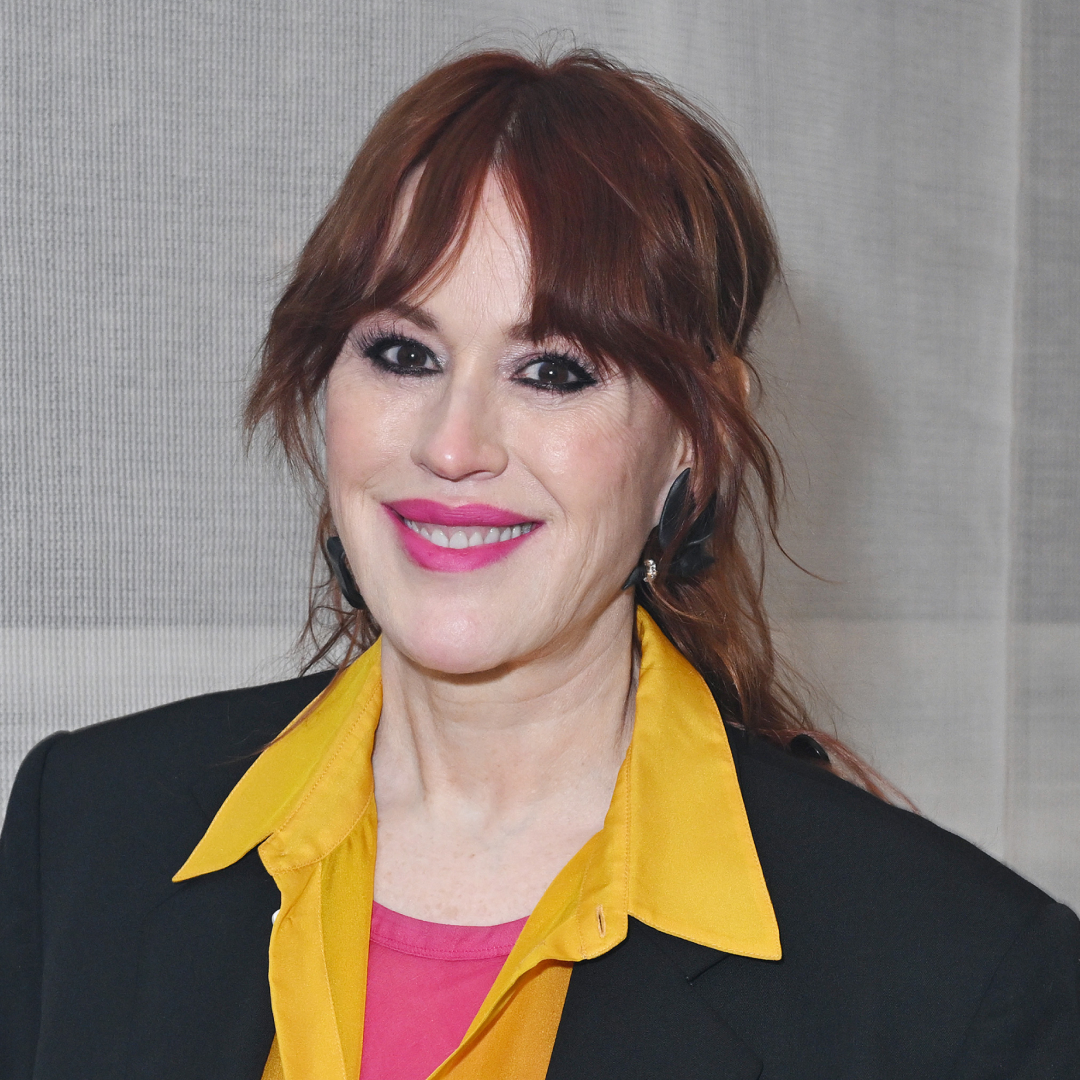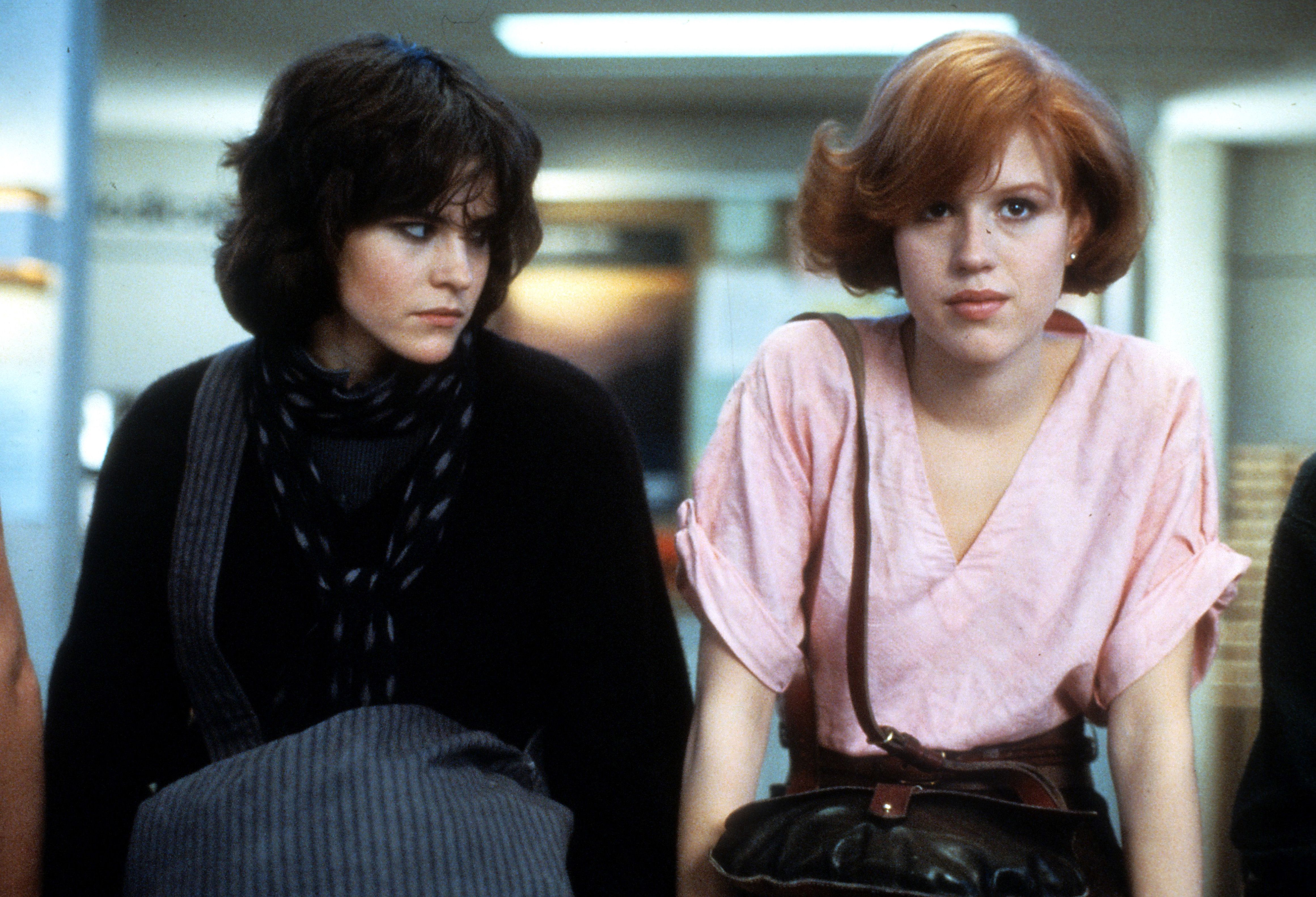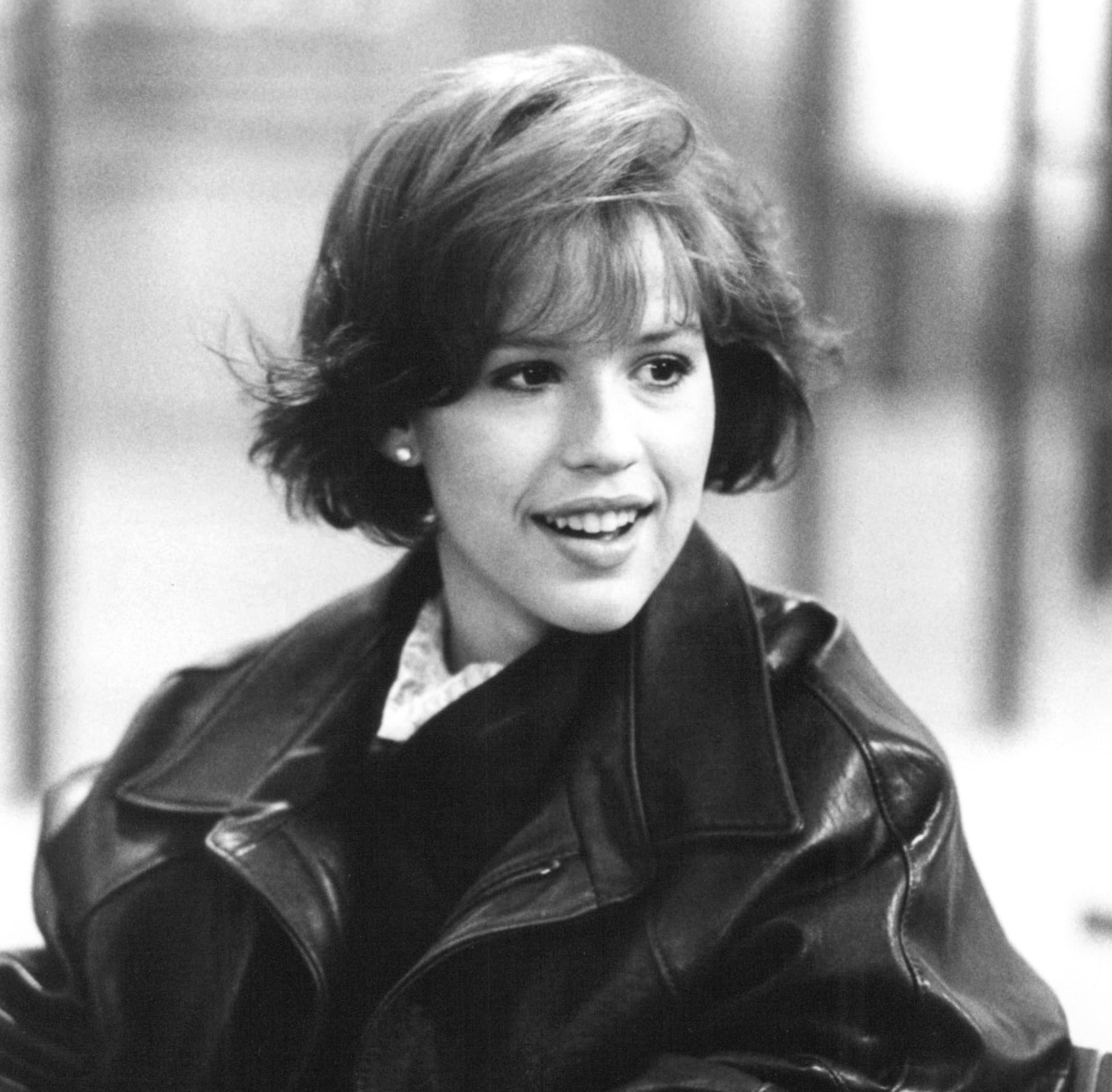
It's no secret plenty of cultural touchstones haven't stood the test of time. From fatphobia to homophobia to latent racism, there's no shortage of cringeworthy moments in cult-classic TV shows and movies. The Breakfast Club, which was released in 1985, is no exception—and even its stars know it.
During a conversation with The Times of London (via Deadline), Molly Ringwald, who played "princess" Claire Standish in the iconic detention movie, talked about her experience rewatching the film with her daughter. "There is a lot that I really love about the movie, but there are elements that haven't aged well—like Judd Nelson's character, John Bender, who essentially sexually harasses my character," Ringwald said to the Times.

Still, the actress added that she had a great time working with director John Hughes on the film, as well as on another '80s classic, Sixteen Candles. "He would just let the camera roll and we would improvise," she said. "It was a very free, creative experience."
This isn't the first time Ringwald has explored The Breakfast Club's problematic themes. In 2018, the actress wrote an essay for The New Yorker about rewatching the movie in the #MeToo era.
"If attitudes toward female subjugation are systemic, and I believe that they are, it stands to reason that the art we consume and sanction plays some part in reinforcing those same attitudes," she wrote, referencing a scene in which it's implied Bender touches Claire under her skirt. "Bender sexually harasses Claire throughout the film. When he’s not sexualizing her, he takes out his rage on her with vicious contempt…It's rejection that inspires his vitriol."

Ringwald didn't hold back when criticizing The Breakfast Club, as well as Hughes' other work. But as with the Times interview, her New Yorker essay also emphasized the director's strengths. She also detailed an encounter with a fan who said The Breakfast Club's portrayal of teens "struggling with their identities" was monumental to him as a member of the LGBTQ community.
Of course, both things can be true, and the conversation isn't as black-and-white as simply labeling the movie "bad." Still, it's nice to see the actress grappling with her work and admitting its shortcomings.







